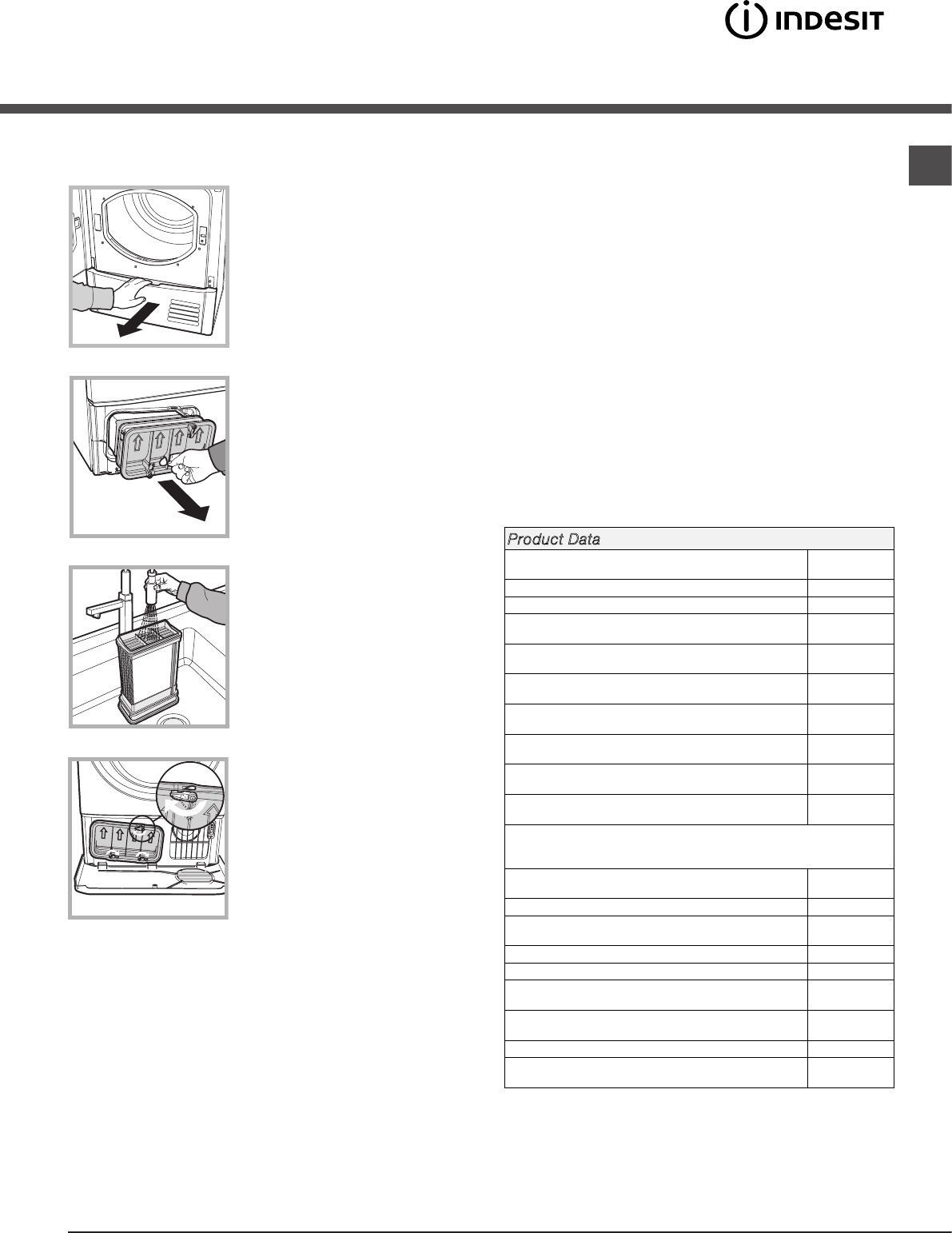
EN
3
Condenser unit - remove any fluff build-up
from the condenser on a monthly basis.
Step 1
Open the condenser cover
- grip the handle and pull
towards you.
Step 2
Remove the condenser by
turning the 3 catches, then pull
the condenser towards you. (It is
normal for some residual water
to be left in the tubes).
Step 3
Clean the condenser with
running water over the rear side
to remove any fluff deposits.
Step 4
Replace the condenser unit;
make sure that the unit is
securely in place, that all 3
catches are fixed and that the
position arrows on the front end
of the condenser are pointing
upwards.
Failure to clean the condenser unit may cause
premature failure of the dryer.
Product Data
Rated capacity of cotton laundry for the "standard cotton
programme" at full load - kg
8.0
Energy efficiency class B
The weighted Annual Energy Consumption (AEc)* kWh 559.8
This household tumble drier is a Automatic
This household tumble drier is a Condenser
Energy consumption full load; Edry - kWh 4.77
Energy consumption partial load; Edry½ - kWh 2.53
Power consumption: off-mode (Po) - Watts 0.14
Power consumption: left-on mode (Pl) - Watts 2.39
Duration of the 'left-on mode' for power management system -
minutes
30
Prog. Time - weighted (Tt) full & partial load - minutes 104
Full load (Tdry) - minutes 139
Partial load (Tdry½) - minutes 78
Condensation efficiency class B
Average condensation efficiency - %
full load (Cdry) 82
partial load (Cdry½) 80
weighted (Ct) full & partial load 81
Airborne acoustical noise emissions - dB(A) re 1 pW 68
The Standard Cotton Programme** suitable for drying normal wet cotton landry that it
is the most efficient programme in terms of energy consumption for cotton used at full
and partial load.
This is the test cycle in accordance with Regulation 392/2012.
See our website for all product fiche data:
http://www.indesit.com/indesit/.
*Consumption per year is based on 160 drying cycles of the
standard cotton programme at full and partial load, and the
consumption of the low-power modes.
Actual energy con-
sumption per cycle will depend on how the appliance is used.


















